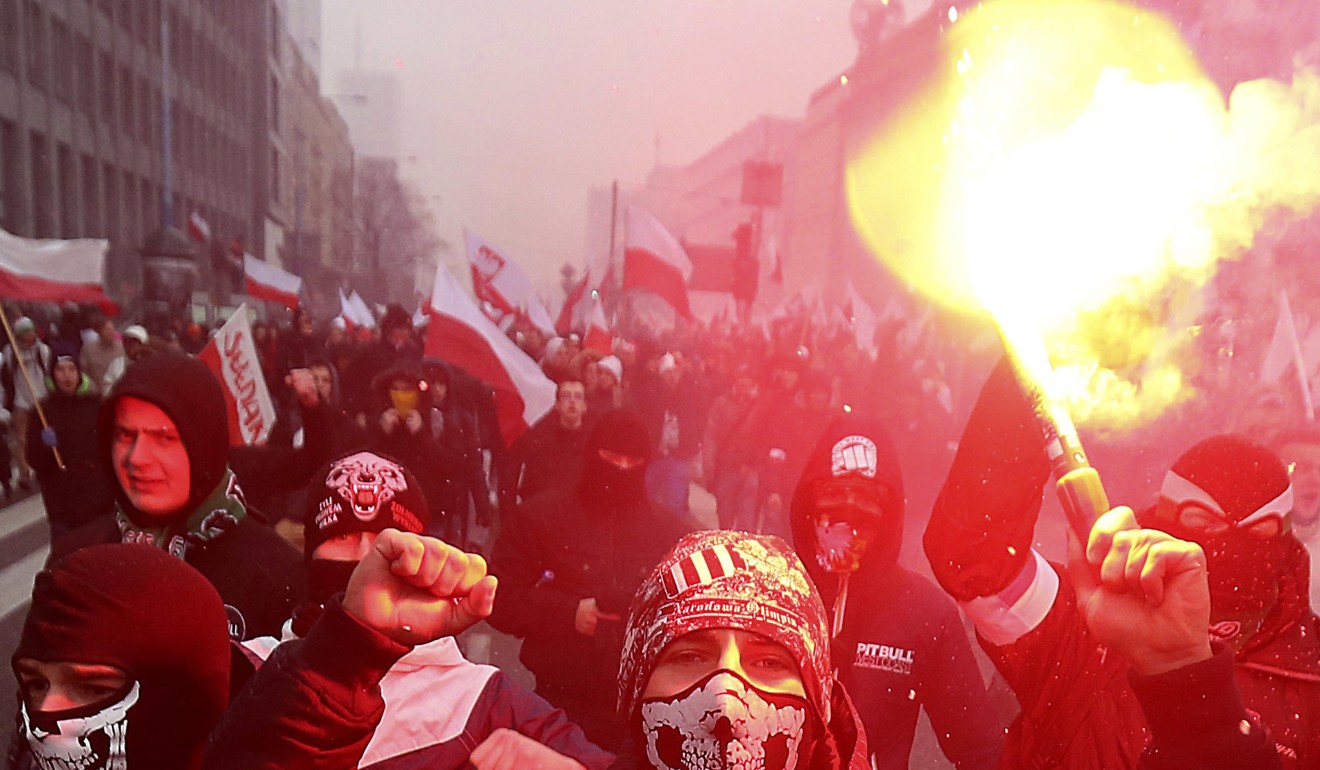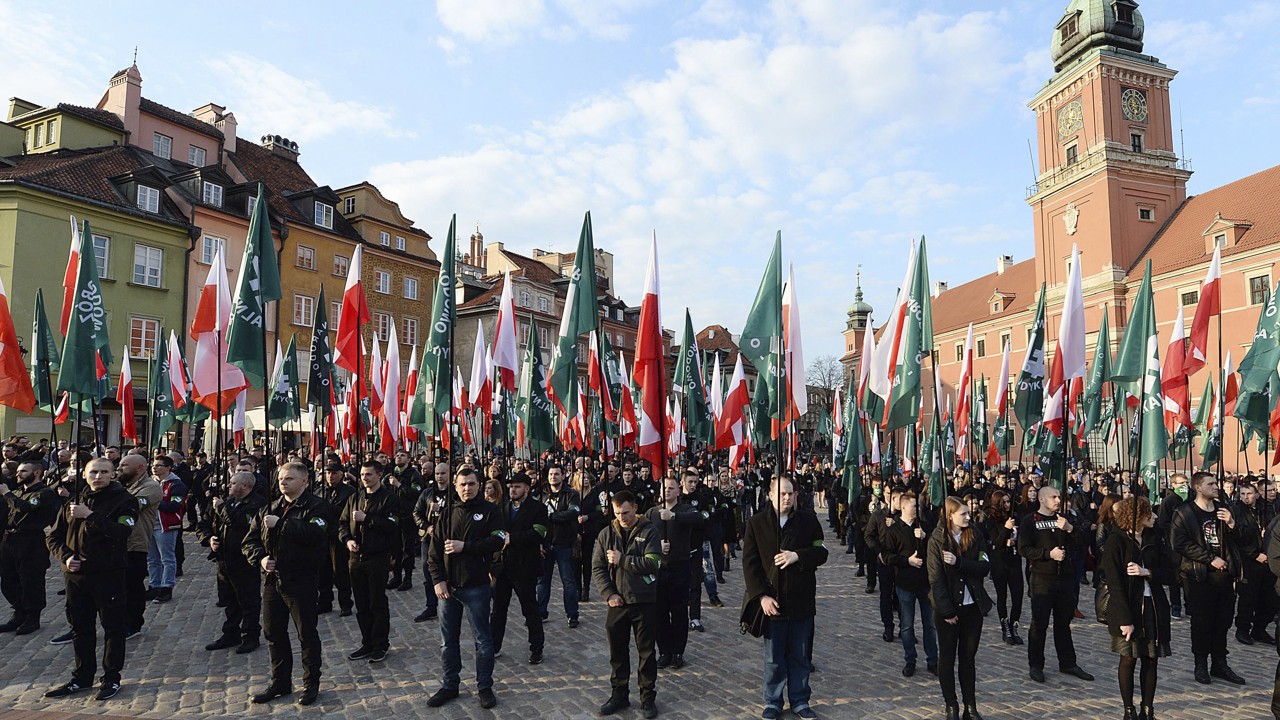
Video of Polish neo-Nazis burning swastikas on Hitler’s birthday puts pressure on right-wing government
The footage was aired on private news channel TVN24, and showed celebrations for Adolf Hitler’s 128th birthday, among other disturbing images
Poland’s right-wing government is facing pressure to act forcefully against far-right extremists following the weekend broadcast of Polish neo-Nazis dressing in Nazi German uniforms and praising Adolf Hitler.
Private news channel TVN24 broadcast hidden-camera footage on Saturday of neo-Nazis celebrating what would have been Hitler’s 128th birthday in a wooded area near the southwestern Polish village of Wodzislaw last spring. The participants chanted “Sieg Heil” and praised Hitler as they burned a large swastika.
Among those caught on camera was a man identified as Mateusz S, the leader of neo-Nazi group Pride and Modernity (DN).
The report has provoked widespread shock in Poland, which was occupied by Germany during the second world war and subjected to widespread massacres and atrocities.

On Sunday, the prime minister denounced the neo-Nazis and prosecutors launched an investigation. But opposition lawmakers on Monday accused the ruling party of allowing such extremism to grow by failing to act against racism over the past two years.
Undercover journalists also filmed large red flags with Nazi swastikas hanging on the trees and an altar with a portrait of Hitler.
Participants in the event set fire to a large wooden swastika soaked in flammable liquid that was fixed to a tree as they played a soundtrack of Nazi military marches.
The footage broadcast on TVN24’s “Superwizjer” current affairs programme also included clips from an ultranationalist rock festival in March 2017 involving both Poles and Germans, with swastikas or the initials SS tattooed on their bodies.
Poland’s rightwing Prime Minister Mateusz Morawiecki took to Twitter to condemn the event, insisting that “promoting fascism or other totalitarian regimes is not only incompatible with Polish law.”
“Above all it tramples on the memory of our ancestors and their heroic struggle for a just and hate-free Poland,” he said “There is no tolerance for these kinds of behaviours and symbols.”

The second world war erupted when Nazi Germany invaded Poland on September 1, 1939.
Some six million Polish citizens, half of whom were Jewish, perished under the Nazi occupation that lasted until 1945.
Lawmakers from Poland’s ruling Law and Justice (PiS) party on Monday urged the interior minister to outline plans to combat neo-Nazi groups.
Prosecutors in the region where the far-right event took place said there was an investigation under way. Totalitarian ideologies like fascism and ethnic or racial hatred are banned in Poland, and carry a penalty of up to two years behind bars.
In November, PiS leaders spoke out against xenophobia after a controversial Independence Day march organised by far-right and nationalist groups that drew 60,000 participants and a chorus of condemnation from around the globe.
While many marchers denied membership of or sympathy for extreme right groups, the event also drew representatives of far-right parties from across Europe.

.png?itok=arIb17P0)
